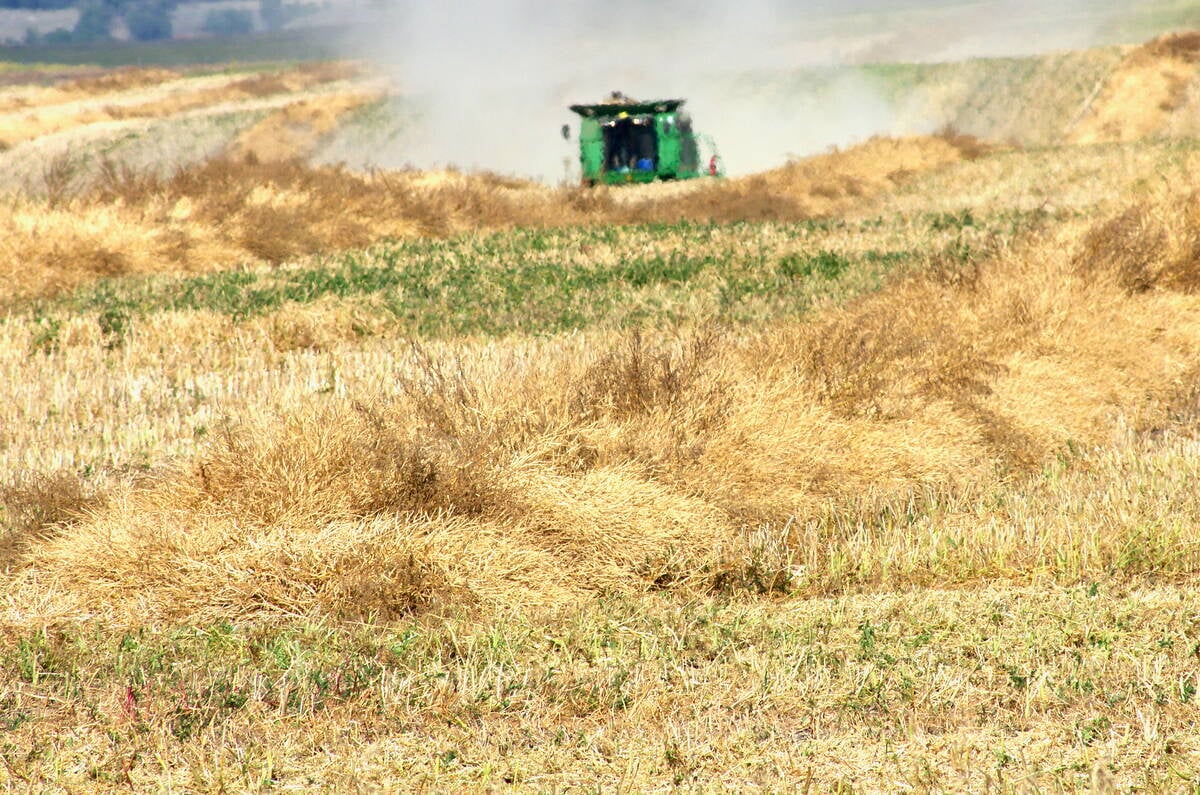Bison meat sales have almost dried up for one of Alberta’s largest bison exporters since the American border was closed after the discovery of bovine spongiform encephalopathy in a single cow.
“It’s affected us in a huge way,” said Tara Lunzmann, office manager of Canadian Rangeland Beef and Bison.
Before May 20, when the border closed to all Canadian ruminant animals, including bison, the central Alberta processor killed 30-50 animals every two weeks.
Now the bison processor kills about 20 animals every two weeks. American sales made up 80 percent of its business.
Read Also

Manitoba searches for Plan B on canola oil exports
A new report explores Manitoba’s current canola oil trade and possible alternative markets to the U.S.
When the border first closed there was a dramatic upswing in bison sales as restaurants, hotels and caterers quickly changed the prime rib beef menu to prime rib buffalo.
“It was a knee jerk reaction of people who didn’t want to eat beef,” said Lunzmann.
But as time passed and beef prices dropped, consumers switched back to beef.
Roland Eben-Ebenau, a northern Alberta producer from Slave Lake, said there is a perception bison producers have taken advantage of beef producer’s woes.
“We just want to say ‘Hello, we’re hurting too,’ as opposed to the opinion on the street that we are rubbing our greasy little hands together,” said Eben-Ebenau, chair of the Alberta Bison Commission.
About 45 percent of all Canadian bison meat product exports went to the U.S. and almost all Canadian live bison exports were sent there, too. There are about 45,000 bison on Canadian farms, with half of those in Alberta.
“The Alberta bison industry is on the verge of collapsing under pressure created by this restricted market access,” said an Alberta Bison Commission News release
news.
Since the announcement that bison will be included in the federal and provincial BSE slaughter program, several producers have phoned Rangeland wanting to sell their bison for slaughter.
But they can’t just slaughter any old cow and hope someone will want to eat a tough steak, she said.
“We’re very partial to what we kill. It has to be a certain age and grade,” Lunzmann said.
The frustrating part is not knowing when the border will reopen.
“Now we could buy some animals pretty cheap. But if the border’s not going to open for seven years, that’s not going to help me,” said Lunzmann, referring to the international protocol that says a country can regain its BSE-free status only after seven years without reporting another case.
“We can’t keep hoping. The ultimate end is to close the door,” she said.
Gorham Hussey of Canadian Frontier Foods said the company sold half its meat to American customers last year. Now, nothing.
“It’s really quite adversely affecting us,” said Hussey whose company buys bison from producers to finish in its feedlot before processing and selling the animals.
Since the border closure, the number of bison they’ve bought from other producers or slaughtered has been cut back dramatically.
Prices have also dropped from about $1.50 a pound dressed weight, to $1.10 a lb.














